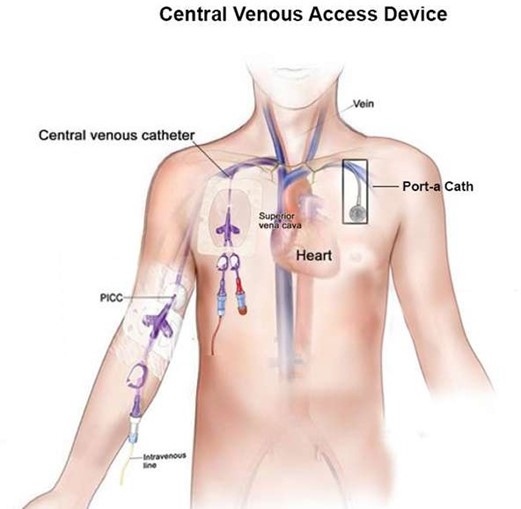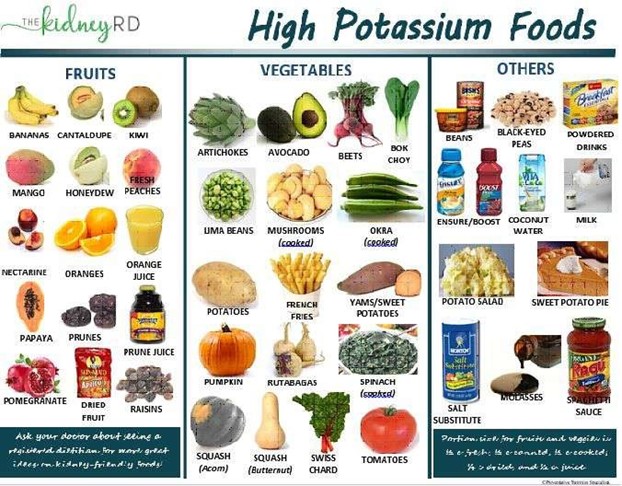A nurse is caring for a client who has a prescription for total parental nutrition (TPN).
Which of the following routes of administration should the nurse use?
Central venous access device.
Midline catheter.
Subcutaneous.
Intraosseous.
The Correct Answer is A

Total parenteral nutrition (TPN) is a highly concentrated solution that provides nutrients to the body intravenously.
It is typically administered through a central venous access device, such as a central venous catheter or a peripherally inserted central catheter (PICC), because it can irritate the walls of smaller veins.
Choice B is wrong because Midline catheter, is not an appropriate route for TPN administration because it is not a central venous access device.
Choice C is wrong because Subcutaneous, is not an appropriate route for TPN administration because it is not given intravenously.
Choice D is wrong because Intraosseous, is not an appropriate route for TPN administration because it is typically used in emergency situations when intravenous access cannot be obtained.
Nursing Test Bank
Naxlex Comprehensive Predictor Exams
Related Questions
Correct Answer is D
Explanation
Improved cognition should indicate to the nurse that the treatment with a hypertonic solution for hyponatremia is effective.
Hyponatremia can cause confusion and other neurological symptoms, so an improvement in cognition would suggest that the treatment is working to correct the electrolyte imbalance.
Choice A is wrong because Chvostek’s sign is a clinical sign of hypocalcemia, not hyponatremia.
Choice B is wrong because while vomiting can be a symptom of hyponatremia, a decrease in vomiting alone does not necessarily indicate that the treatment is effective.
Choice C is wrong because while hyponatremia can cause cardiac arrhythmias, the absence of arrhythmias alone does not necessarily indicate that the treatment is effective.
Correct Answer is A
Explanation

Spironolactone is a potassium-sparing diuretic that can increase potassium levels in the blood.
It is important for clients taking spironolactone to limit their intake of potassium-rich foods to prevent hyperkalemia (high potassium levels).
Choice B is wrong because “I will take the medication on an empty stomach,” is not the correct answer because spironolactone can be taken with or without food.
Choice C is wrong because “I will use salt substitutes in place of table salt,” is not the correct answer because many salt substitutes contain potassium and can increase the risk of hyperkalemia.
Choice D is wrong because “I will double up on my medication if I miss a dose,” is not the correct answer because it is not recommended to double up on medication if a dose is missed.
Whether you are a student looking to ace your exams or a practicing nurse seeking to enhance your expertise , our nursing education contents will empower you with the confidence and competence to make a difference in the lives of patients and become a respected leader in the healthcare field.
Visit Naxlex, invest in your future and unlock endless possibilities with our unparalleled nursing education contents today
Report Wrong Answer on the Current Question
Do you disagree with the answer? If yes, what is your expected answer? Explain.
Kindly be descriptive with the issue you are facing.
